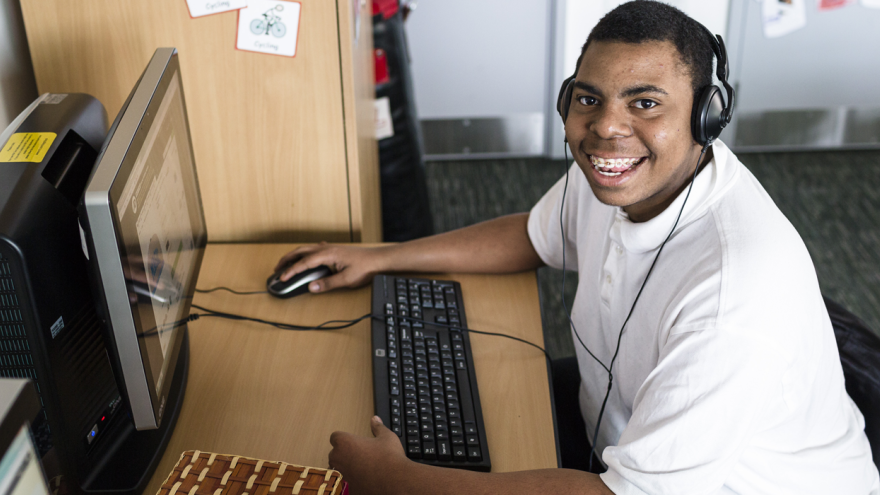What is cyberbullying?
Cyberbullying is when someone repeatedly sends you messages online that are hurtful, embarrassing or threatening.
There are so many wonderful things about the internet - keeping in touch with friends, finding information, watching videos and playing games. But the internet can also be a place where bullies thrive.
The ability to be anonymous, create fake accounts, or to feel removed from a situation by a smartphone or computer screen can give people the confidence to bully or take advantage of people. We sometimes call them trolls and cyberbullies.
You might get hurtful messages in:
- emails
- chat rooms, forums and communities like Reddit and Quora
- text messages
- online social media like Twitter, Facebook, Youtube, Instagram, Google+, LinkedIn and more
- instant messaging like Whatsapp and Snapchat
- other websites.
Online bullying behaviour includes:
- being teased or made fun of online
- unpleasant comments being posted about you
- pictures or videos of you being shared publicly online that you don’t want to be seen
- blackmail (pressuring you to do something by threatening to post things you don’t want to be seen)
- someone using your username and password and pretending to be you to hurt someone else
- someone using your username and password and pretending to be you to post embarrassing things.
Sometimes cyberbullies target people anonymously or with fake accounts. Someone may pretend to be your friend, but then ask you to do things that make you feel uncomfortable, like send them a naked picture of yourself.
If someone makes you feel uncomfortable, threatens you or tries to blackmail you online, they are clearly not a friend. Find out about mate crime.
If you have concerns for someone's wellbeing or safety call Mencap's helpline on 0808 808 1111.

Stay safe online
Are you a savvy surfer?
Learn how to stay safe online, so you can enjoy surfing the net with peace of mind.
As part of our SafeSurfing project, we produced resources to help you know what personal information you should share online, how to protect your personal data and surf the web safely.
What you can do about cyberbullying
If you think you are being bullied online, it’s important to know that you have nothing to be embarrassed or ashamed about - it is never your fault if someone treats you this way. And there is plenty of support to help you get through it.
The first thing you should do is think about how serious it is. Is the person deliberately trying to hurt you? Do you feel comfortable telling them how their behaviour makes you feel and asking them to stop? If so, have that conversation and see if that resolves the problem.
If the situation is more serious and you think the person is being mean on purpose or making you feel upset, embarrassed or bad about yourself, speak to someone you trust right away - they will understand and support you to put a stop to it.
Dos and don’ts to help you deal with bullying online
Dos
- Do report them as a spammer. Facebook, Twitter and most social media, instant messaging and
community
 A community is the people and places in an area.
platforms will have a way for you to report a post or message. You can take a screenshot as evidence if you think you may need to - for example if this is a case of harassment and you might need to involve the police.
A community is the people and places in an area.
platforms will have a way for you to report a post or message. You can take a screenshot as evidence if you think you may need to - for example if this is a case of harassment and you might need to involve the police. - Do stop the cyberbully from contacting you by blocking their email address, phone number, and either deleting or blocking them on social media and instant messaging apps.
- Do report any threats, blackmail or inappropriate sexual messages to the police.
- Do speak to someone about it - a parent, friend, counsellor or therapist. It’s perfectly normal to speak to a therapist and it does not mean that there is something wrong with you. Talking about your experiences can be a way to process what has happened and move past it.
Don'ts
- Don’t ignore the bullying - it won’t go away by itself.
- Don’t respond to any hurtful messages or posts written about you - this can make the situation worse and in some cases is what the bully wants.
- Don't try to get revenge on a cyberbully - rise above it. If you start bullying someone else, you can make the situation worse for yourself. A good rule to remember is: “If you wouldn't say it in person, don't say it online”.
- Don't blame yourself - it’s not your fault and no-one has the right to make you feel bad or ashamed of who you are or what you feel. Often it is the bully who has the problem, so try to remember that.
- Don't dwell on it by re-reading the messages - delete them and concentrate on something positive, like making something, watching a film, reading a book, or meeting up with a friend.
"Having conversations is vital in supporting young people to stay safe online. When addressing things like online safety and boundaries with young people we need to present balanced view points."
Amber, from Brook - the sexual health and wellbeing charity, is an expert on our online community and gives some tips on talking to young people about digital boundaries.
Take a look at the post and ask questions or share your thoughts.
Support dealing with cyberbullying
Remember that this isn’t your fault and you are not alone - there are lots of people here to help you. You can get support from lots of different people:
- Your parent or carer: quite often we want to talk to our parents or carers about the things that upset us. Don’t worry about upsetting them - they love you and will want to support you through this experience.
- Your
support worker
 Support workers
Support workers
 Support workers are people who are paid to give care and support to people who need it.
are people who are paid to give care and support to people who need it.
: your support worker might be a good friend that you trust to speak to about your experiences.
Support workers are people who are paid to give care and support to people who need it.
are people who are paid to give care and support to people who need it.
: your support worker might be a good friend that you trust to speak to about your experiences. - Someone in your family - speak to your brother or sister, cousin, grandparent, aunty, spouse or partner - whoever you feel comfortable talking to about this.
- Your doctor: if you are feeling sad and anxious you may want to speak to your doctor about how you are coping with the bullying. They might be able to give you medication or refer you to a counsellor.
- A therapist or counsellor: many people speak to therapists to help them get through a distressing experience. If you think you need some advice or support from a professional, you could ask your doctor to refer you to a therapist.
- Mencap’s helpline: if you don’t feel comfortable telling your family what you are going through, you can speak to Mencap’s friendly advisors. Our helpline is free and you can talk to someone anonymously if you like. They can offer advice on what you can do next.
